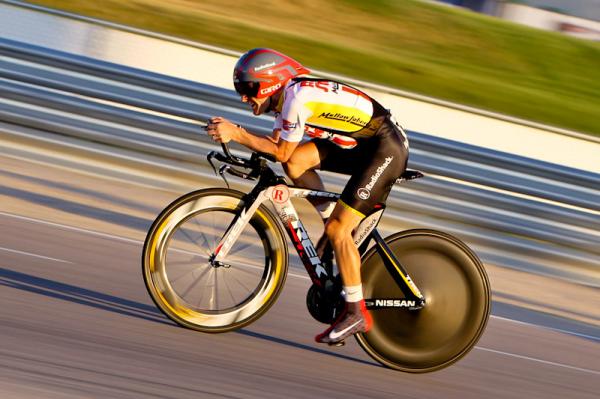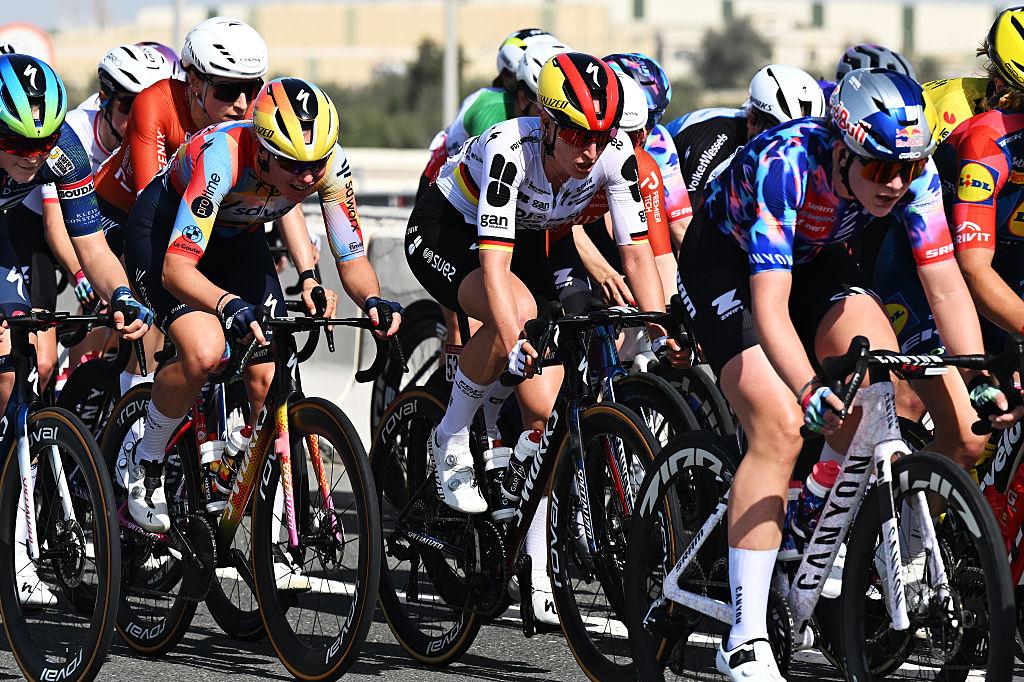Leipheimer hopes hilly criterium will eliminate Utah contenders
Riders expect hilly crit to have a big impact
The latest race content, interviews, features, reviews and expert buying guides, direct to your inbox!
You are now subscribed
Your newsletter sign-up was successful

Levi Leipheimer (Mellow Johnny’s) is looking forward to the Tour of Utah’s stage three criterium held in Park City. The race leader is without teammates for support and he is depending on the more than 4000 feet of climbing to eliminate some of his competition before the final stage on Sunday.
“The crit is hard and that might actually play into my favour,” Leipheimer said. “It’s at altitude and it will be hard. But we are going to have to wait to see just how hard. I think it will take out about 90 percent of the riders because of how hard it is.”
The Tour of Utah’s penultimate stage is a brand new criterium course in Park City, but it is not a day for the sprinters. The extensive amount of climbing might make the course better suited to the climbers, with a hilly 1.6-kilometre circuit held in the historic area.
“It’s the talk of the town because any time there is a new course with hills in it, it’s hyped up,” said BMC Racing’s Brent Bookwalter. “There has been a lot of talk about if it’s going to be a general classification day or whether people are going to save it for the last day.
“We really don’t have much to lose now,” he added. “Hopefully I’ll be in the mix tomorrow but I’m just taking it day by day. I had no expectations coming into this stage race; it was sort of an afterthought.”
Teams have traditionally included a token sprinter in their Tour of Utah roster, because the six-stage race previously included a flat, four-corner criterium suited to the savviest criterium specialists. Sprinters like Ken Hanson (Team Type 1) and Ivan Dominguez (Jamis-Sutter Home) are slightly disappointed with the swap from a flat course to a hilly one instead.
“Crits in a stage race always have different dynamics than a one day crit,” Hanson said. “My strategy for tomorrow is to get in a breakaway as early as I can. I race at altitude on a technical course that is really hilly it is better to be in a break where you can do more steady efforts is more suited to me. Tomorrow we are going to have to look at all of our options unlike a typical criterium that is more of a flat course.
The latest race content, interviews, features, reviews and expert buying guides, direct to your inbox!
“Ivan Dominguez is one of only other pure crit specialists here and we had a couple of jokes yesterday when we were both in the break on a course with the 20 km climb at the end, definitely our forte,” he laughed.
Dominguez acknowledged the course might not cater to his ability but that it could be his last opportunity for a stage win given the mountainous stage five finale on Sunday.
“Well let me think, 5000 feet of climbing plus 2700 metres of altitude equals me out of the race at around 45 minutes,” laughed Dominguez. “We will see, I’m going to do my best. It is going to be a hard course and last year when they had it as a neutral start the riders were thanking God that it wasn’t a part of the race, now it’s a crit. It is a different type of race and maybe tomorrow I will feel good.
“I’d like to win a stage but that will be very hard,” he added. “I think it will probably be a breakaway on the kind of course. Or because in the rules it says you can do half the race before you get lapped, I think a lot of guys will be waiting for that and then try to save their legs a little for the next day. For me, as a sprinter, the next day is not important so I’d like to finish tomorrow’s crit well.”
The Tour of Utah will end with its queen stage from Park City to Snowbird road race on Sunday. It is the longest and possibly the most challenging course at 164 kms of mountainous terrain that ends with a lengthy ascent to the top of Snowbird Ski Resort.
“I think it is going to be a very decisive stage, the criterium,” said Bissell’s Jeremy Vennell. “Even if the GC riders don’t get time on each other I think it is going to tire out the legs for the last day and that will be critical.”

Kirsten Frattini has been the Editor of Cyclingnews since December 2025, overseeing editorial operations and output across the brand and delivering quality, engaging content.
She manages global budgets, racing & events, production scheduling, and contributor commissions, collaborating across content sections and teams in the UK, Europe, North America, and Australia to ensure audience and subscription growth across the brand.
Kirsten has a background in Kinesiology and Health Science. She has been involved in cycling from the community and grassroots level to professional cycling's biggest races, reporting on the WorldTour, Spring Classics, Tours de France, World Championships and Olympic Games.
